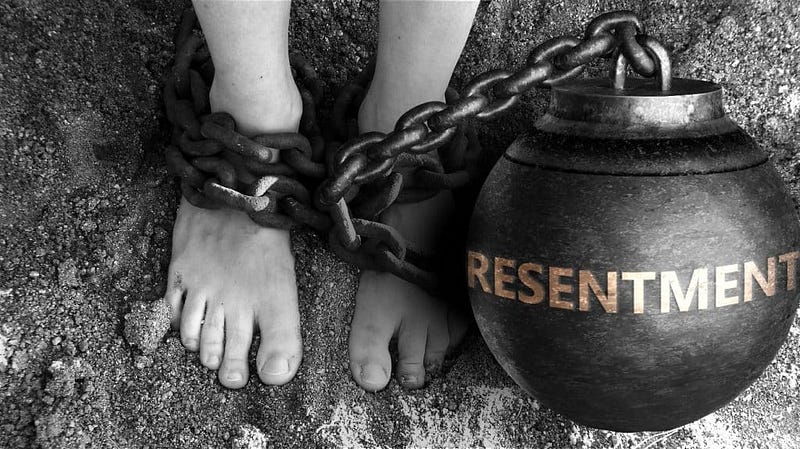
There are those among us who have the remarkable ability to read the emotional and mental states of others. They can recognize the other person’s state and respond with care or compassion.
They are good at putting themselves in other people’s positions and experiencing their feelings.
Empathy is a key ingredient for building strong relationships. It helps you understand others’ needs and, if necessary, act with compassion to improve their situation.
This is especially important today, where most often feel alienated despite having many friends or connections.
At our core, we long to share our experiences — whether they involve joy, sadness, boredom, or even suffering — and empathy is vital for that.
While empathy is important, its application must be thoughtful and situational.
The Intent
In an ideal world, we would all show reciprocal empathy, embodying it in fullness.
However, our world is far from ideal, and applying empathy isn’t always straightforward.
Life operates in gray areas, where the true impact of our emotions and actions depends on how we use them.
Take anger, for instance.
Anger is often viewed negatively as a sense of unpleasantness is ascribed to it. This unpleasantness might be due to someone’s actions, your circumstances, or even dissatisfaction with yourself.
When we act on anger impulsively, we may fail to express it rationally.
Imagine you were in an argument with your loved one. They irritate you, and in the heat of the moment, you lash out with profanities, something uncharacteristic of you.
Naturally, you may regret it later and wish you could have handled the situation differently, even if your anger was justified.
In some situations, though, an initial outburst might feel justified. Human beings are complicated, and some will only get the message when great displeasure is expressed.
Anger can be a powerful catalyst. It can motivate us to improve ourselves or take action to change an unjust situation.
Anger with injustice drives us to take action against the elements causing harm. We protest, match, and speak out in our anger to create change.
So, it’s not about whether anger is inherently good but about how we express or withhold it, depending on our circumstances.
Something will inevitably vex us at some point — human beings are fallible, and life isn’t perfect, but it is important to manage such moments constructively.
The same principle applies to empathy. The goal shouldn’t be maximal empathy but thoughtful empathy at the right times in the right ways.
Resentment
Empathy exists in varying degrees among people. Like any skill, it can be cultivated and nurtured, but it comes more naturally to some than others.
We all have that one friend or family member we turn to because they listen, understand, and help us feel better during difficult times. Perhaps you are that person for someone else.
However, differing levels of empathy — and ignorance of these differences — can lead to resentment.
If you are highly empathetic and proactively help someone through their struggles, they will appreciate your effort.
You might even find fulfillment in supporting them.
However, depending on how you exert yourself, a malignant pattern may gradually develop if you’re not careful.
They may begin to reach out during moments of crisis, while you hear little when they are fairing well. This creates an imbalance, where you essentially become their therapist, only being involved in the negative fragments of their life.

This dynamic can breed resentment. The relationship gradually decays, as without shared experiences — good or bad — you never really get to know that person.
That person may not even realize this is happening, and it is not necessarily their intent to rely on you in times of their suffering.
In moments of deep distress, they may be consumed by their own pain, making it difficult for them to recognize that you are human too and that you won’t always be 100%.
You can’t fault them as much, as it is difficult to attain this form of awareness while overwhelmed with suffering.
Ultimately, this situation calls for evaluating your relationships and assessing whether they are mutually beneficial.
Setting healthy boundaries should be a priority to avoid emotional exhaustion, the state in which resentment emerges. This can be challenging, especially where family is involved, but it is necessary.
In order to take care of others, you first have to take care of yourself, and this includes protecting your emotional reserves from being drained.
Resentment could also emerge when there is a mismatch between others’ empathy skill levels and our expectations.
Our expectations can sometimes be unrealistic. It is vital to recognize that people demonstrate empathy differently.
Some may actively listen and check in regularly, while others may express empathy more subtly or quietly. Their capacity to empathize may not match yours, but that doesn’t mean the intent isn’t there.
Resentment arises when you reason, I do X, Y, and Z for this person, but when it’s their turn, they only do X. While it would be incredible if we reciprocated empathy to the same degree, not everyone has the capacity for it. Their mental and emotional states at the time may influence how empathetic they can be.
Understanding this can help ground our expectations. People emote differently, and you should appreciate the effort they put in.
Good for Its Sake
I recently rewatched Christopher Nolan’s Batman Begins, and the ending scene stood out to me.
In it, Inspector Gordon and Batman discuss the changes in Gotham as a result of Batman’s fight against the criminal underworld.

Batman commits himself to serving Gotham, not for recognition or reward, but to inspire hope and faith in the justice system.
He doesn’t expect anything in return, only that his actions might catalyze a safer, more secure Gotham.
Empathy should be practiced for its own sake — not attaching any strings to it.
This doesn’t obligate you to operate at Batman-like levels of care to others.
You could, but only do so if you can afford to without exhausting your reserves or caving into resentment if your efforts aren’t appreciated or reciprocated as you would hope.
The key is doing what you can and understanding that your capacity for empathy will differ from others.
This is an act of empathy in itself.
However, for empathy to have a positive sum effect on both parties, it should be executed with healthy boundaries and self-awareness. You don’t want to become someone else’s perpetual emotional crutch.
All in all, any good deed should be done for its own sake — because it is the right thing to do.
Selfishness
The world can be a cold and unforgiving place. Suffering is an inevitable aspect of it.
Suffering can be isolating as if shrouded in darkness with no hope of a coming dawn.
Having someone to share this burden with, someone who resonates with and understands the darkness you’re in, could help alleviate its sting.
We look out for our friends, family, and loved ones because we don’t want them to suffer, and we want to be there for them when they do.
But at times, it’s important to let people suffer, not out of cruelty or indifference, but because suffering, as painful as it may be, plays an important role in character development.
While unpleasant, suffering offers an opportunity for the individual to develop strength, courage, and resilience to face life’s unending trials.
Life demands it, as bereft of these qualities, you may crumble in the face of hardships.

A will’s true strength is measured not just by how much hardship it can endure, but by its ability to transform those struggles into something beneficial.
In some cases, these qualities can only be nurtured when one faces their suffering alone.
One has to learn to summon their own light when in the pits of despair, even when the sun refuses to shine its light upon them.
In these moments, one learns to cultivate strength and resilience.
Empathy, though inherently kind, can sometimes mask a subtle form of selfishness.
In our desire to ease someone else’s pain, we may act out of a need to relieve our own distress.
You probably fear that they cannot handle it, and you feel compelled to act. While well-intentioned, this response could, at times, deny the other person’s character development.
True kindness requires discernment. You can empathize with someone and offer a guiding hand without stepping in to actively alleviate their suffering.
Sometimes, restraint is the greater act of care.
Parents often intervene when their children face challenges, driven by love and a desire to protect.
Good parental love recognizes that the world demands resilient individuals. While parents may long to shield their children from the hardships of life, they have to recognize that they can only do so for so long.
The kids ultimately grow up, and it will be their turn to carry life’s burdens.
By allowing them to face manageable struggles and offering support when necessary, they teach them to navigate hardship independently.

Parents sending out their teenage kids to work early expose them to the realities of the world. This allows them to struggle and learn in a controlled environment while still having the safety net of parental guidance.
Overprotecting your child is selfishness.
The child might appreciate it, but the child isn’t wise enough to know that it is missing out on the autonomy, independence, and competence it could gain from slowly tackling life struggles.
When they mature, they will struggle to handle real-world situations, falling behind peers who learned resilience through gradual exposure to difficulties. This leads to them playing catchup when that time and energy could have been invested in addressing the bigger asks of adulthood.
The key is finding balance—offering warmth and support while allowing space for growth. This view acknowledges that while the world can be harsh, our role isn’t to shield others from hardship but to support them as they develop the strength to face challenges.
Interestingly, learning to bear one’s own suffering equips the individual to empathize better with others. With wisdom and experience, they can offer meaningful support, even if that means stepping back and allowing someone to navigate their pain alone.
Aristotle’s Golden Mean
Socrates and Plato believed that life should be guided by eternal ideals—the true, the real, and the good—ideals meant to transcend time and moral relativism.
Aristotle, Plato’s student, believed that the ultimate purpose is to live virtuously, guided by the “Golden Mean.” Virtues should be applied in the right measure, depending on the context.

For example:
- If you’re too loyal, you’re classified as a fanatic. If you’re not loyal enough, people will think you’re a traitor.
- Being overly nice will make others think you are a pushover while being too harsh might earn you a reputation as a jerk.
The key is in determining the right amount of virtue for each situation.
Sometimes, you have to be a jerk.
You have to be willing to be unpleasant in certain situations, especially when dealing with unreasonable people.
Sometimes, you have to unsheathe your sword and demonstrate how mighty it can be, as this may be the only form of communication some individuals will comprehend.
Similarly, I believe the golden mean principle applies to empathy.
Misapplied empathy can lead to resentment when your efforts aren’t reciprocated or to overbearing actions that rob others of the growth they need.
The goal is to rationalize your empathy — deem whether the situation truly needs of it, and if so, to what degree should you intervene, or if stepping back might be a better act of kindness.